Friday Trump & Politics Roundup - 13
 This is my semi-regular feature to post links to articles about Donald Trump along with excerpts from those articles. Trump has the potential to cause so much damage to our country and the world that it's every citizen's responsibility to keep pressure on him and our other elected officials to try to minimize the damage. To read previous entries in this series and other Trump related posts, check out my Trump archives.
This is my semi-regular feature to post links to articles about Donald Trump along with excerpts from those articles. Trump has the potential to cause so much damage to our country and the world that it's every citizen's responsibility to keep pressure on him and our other elected officials to try to minimize the damage. To read previous entries in this series and other Trump related posts, check out my Trump archives.
It's been a few weeks since I've done one of these posts - not because Trump's been getting better, but because I've been busy focusing on other things. But like the introduction says, Trump has so much potential to cause harm, so we can't let 'Trump fatigue' let him start getting away with harmful policies and actions.
NBC News - Trump Proposes Slashing Medical Research This Year, Too
"The Trump proposals would slice $1.2 billion from a $31.6 billion NIH budget as it was laid out in the December continuing resolution. They also target health and science programs across other government agencies, including plans to:
•Take $350 million from the National Science Foundation's $6.9 billion budget
•Cut $37 million from the Department of Energy's $5.3 billion worth of science programs
•Excise $48 million from the Environmental Protection Agency's research and development budget of $483 million
•Cut in half the $101 million Teen Pregnancy Prevention program
•Reduce Food and Drug Administration staff spending by $40 million
•Cut domestic and global HIV/AIDS programs by $100 million plus cut the Presidential Emergency Program for AIDS Relief (PEPFAR) $4.3 billion budget by $242 million
•Completely delete the $72 million Global Health Security fund at the State Department and cut other global health programs by $90 million and $62 million for global family planning"
"With the release of the White House's budget blueprint, Helicopter Association International (HAI) is alarmed that the Trump administration is pursuing the transfer of oversight of air traffic control (ATC) from the FAA to a private corporate entity that will be under the control of an airline-dominated board of directors. / 'HAI members currently enjoy a good relationship with and high level of service from the air traffic control division of the FAA, which is universally acknowledged as the safest and most efficient system in the world,' said Matthew Zuccaro, president and CEO of HAI. 'It would appear that the primary rationale for this initiative is the airlines' desire to gain control of the airspace, which is not in the best interest of other aviation stakeholders. The turnover of control of the National Airspace System to the airlines represents a clear conflict of interest. As the dominant force on the proposed governing board of the new ATC entity, the airlines stand to gain the most by focusing on their particular needs.' / The helicopter industry takes comfort in the fact that the air traffic control system is under the watchful eye of Congress, and that FAA ATC daily operations are conducted by the recognized professionals within the air traffic controller community."
Industrial Equipment News - Trump Budget Causes Alarm in Appalachia: The Appalachian Regional Commission says it has created or retained more than 23,670 jobs in the past two years, but it's on the chopping block in Trump's new budget.
"The ARC began its work in 1965 as part of former Democratic President Lyndon Johnson's famous "war on poverty." In the past two years, the agency has spent $175.7 million on 662 projects that is says has created or retained more than 23,670 jobs. / That investment has paid off: In Kentucky, the commission has awarded $707,000 to the Eastern Kentucky Concentrated Employment Program, which used the money to train 670 people who now have full time jobs earning a combined $13.6 million in wages." ... "It's also targeted for elimination by President Donald Trump. / Trump's budget proposal has alarmed much of the region, including longtime Republican Congressman Hal Rogers, who represents the mountainous eastern Kentucky coal region where Trump won every county, a first for a Republican presidential candidate. / 'I am disappointed that many of the reductions and eliminations proposed in the President's skinny budget are draconian, careless and counterproductive,' Rogers said."
IFL Science - Trump's Budget Annihilates Funding For Education And Environmental Science
"President Trump submitted his budget blueprint for the upcoming fiscal year to Congress today, and as expected, it's mostly bad news for government agencies, who are having their funding drastically slashed through a series of draconian spending cuts. / The biggest swing of the axe is set to fall on the beleaguered Environmental Protection Agency (EPA), which is currently led by a climate change denier of the highest order, the agency's former archenemy Scott Pruitt. According to an analysis by Bloomberg, its budget will be reduced by 29.6 percent, with programs focusing on pollution and carbon footprint mitigation set to lose out the most. / The Department of Education (ED), headed by someone with no experience in public schools whatsoever, is also set to lose 13.6 percent of its funding. / It's worth noting that both Betsy DeVos and Pruitt are nonplussed whenever the subject of the obliteration of their agencies comes up in conversation - and that there are concrete steps being made by Congressional Republicans to abolish both of them by the end of 2018." ... "The Department of Agriculture (USDA), the federal branch of government responsible for, among other things, maintaining the food supply of the US, is set to lose 29 percent of its funding. Health and Human Services (HHS), whose job it is to protect the health of all Americans, will also lose 23 percent of its budget."
Vox - The House just passed two bills that would stifle science at the EPA
"House Republicans just passed two bills that will make it harder for the Environmental Protection Agency to use scientific research to protect health and the environment. And they've done so under the deceptive guise of 'transparency.' / Over the past two days, the House has passed the 'HONEST Act' and the 'EPA Science Advisory Board Reform Act.' On the surface, they seem noble. They use the same language scientists use when advocating for stronger research practices. / But they're 'wolf in sheep's clothing types of statutes,' says Sarah Lamdan, a law professor who studies environmental information access at CUNY. 'What's really happening is that they're preventing the EPA from doing its job.' "
"In a CNBC interview, when asked, "Do you believe that it's been proven that CO2 is the primary control knob for climate?" he replied this way: / 'No, I think that measuring with precision human activity on the climate is something very challenging to do and there's tremendous disagreement about the degree of impact. So no, I would not agree that it's a primary contributor to the global warming that we see.' / This is science denialism at a stunning level. And it's incredibly disingenuous, too." ... "That's a classic denial method of distraction, sowing confusion about one issue to downplay another. Not only that, it's utter baloney. We know for a fact that carbon dioxide is a greenhouse gas, and the main driver for the increased global warming we've seen over the past few decades. We also know for a fact that all or nearly all of that warming we've seen is caused by human activity." ... "And that is why so many scientists are up in arms over the Trump administration's bizarre and terrible appointees to science agencies, like Pruitt. They aren't just ignorant of basic science; they're openly antagonistic toward it. And that's why we must continue to speak up, make our voices heard, and do what we can to prevent these people for destroying the one planet we've got."
IFL Science - Energy Department's Climate Office Banned From Using Phrase 'Climate Change'
"In case you needed reminding, it's a bad time to be a scientist in the US. If you work for a federal research group, you've been muzzled, had your funding cut to historically low levels, and been told by a committee of anti-intellectual parrots that you're constantly lying. / Earlier this month, the word "science" was removed from the Environmental Protection Agency's (EPA) mission statement under the auspices of a man who doesn't think carbon dioxide warms the planet. Now, it seems that the Department of Energy's (DoE) climate change research office has banned the use of the phrase "climate change". / As reported by Politico, a supervisor at the DoE's Office of International Climate and Clean Energy told the staff in no uncertain terms that the phrases "climate change", "emissions reduction", and "Paris agreement" are not to be used in written memos, briefings, or any form of communication."
Bad Astronomy - When it comes to climate change, some people just want to watch the world burn
"On Wednesday, March 29, the House Committee on Science, Space, and Technology will hold a hearing entitled 'Climate Science: Assumptions, Policy Implications, and the Scientific Method'. / This hearing will be a sham. / My apologies for not mincing words, but there's no other way to say it. This Committee holding a hearing on the scientific method is like an arsonist holding a hearing on how to upgrade a fireworks factory security system. I strongly doubt the intent will be to honestly investigate climate change and scientific methodology. Instead, it will likely be an attack on the science, and lay the groundwork for further impediments to it. / This isn't hard to suss out; over the years the many sins of the Committee's majority members have been out in the open for all to see. Right after the GOP took over the House in the 2010 midterm elections, they stacked the Committee with members who deny basic science -- including such things as the Big Bang, evolution, climate science, and even anatomy (remember Todd Akin?). Their official Twitter feed commonly posts ridiculous comments..."
"America's universities are the best in the world. The quality of the students, faculty, teaching, infrastructure, the commitment to academic freedom, and the extraordinary research opportunities attract the best and brightest people from around the globe to the United States. And our nation is far better for it." ... "In all, 42 percent of the Nobel Prizes awarded between 1901 and 2015 went to individuals working/living in the United States, and nearly one third of those recipients were born outside the U.S. Our ability to attract the world's leading scientists to our universities has helped us maintain global leadership in innovation and discovery, a tremendous component of our economic strength and national security." ... "Research universities are seeing an immediate effect on the recruitment of international faculty and students. Stony Brook University has seen a decline of roughly 10 percent in international applications for graduate school this year, a figure that seems to be on a par with the decline seen at other institutions. The reasons for these declines may not be solely based on anti-immigration policies and rhetoric, but some accepted applicants to Stony Brook, especially from countries targeted by the first Executive Order, have stated explicitly that they will choose a Canadian or Australian university instead, based on the uncertainty of U.S. immigration policy and the fact that they are being singled out based on their country of origin, not on their academic credentials. And the recent suspension of expedited processing of H1-B visas, which is of significant concern to the Technology Sector, could also have a chilling effect on the ability of Universities to attract outstanding international faculty and scientists to help sustain our research and educational missions."
"Since the election, Republicans in Congress have launched a sustained attack on America's national parks and public lands. Starting in January, they wasted no time putting in place new rules and legislation that threaten the future of our national treasures. They launched their assault on their very first day in session, and haven't stopped." ... "Republicans are determined to place our public lands in corporate hands, and Trump is happy to help them. So it's up to us. If you've ever loved our national parks, if you've ever enjoyed the wildlife in federal refuges, if you've ever taken your family to explore our heritage at national historic sites, now's the time for you to act."
Vox - 6 reasons the Trump presidency is in shambles
[On the plus side, this means Trump isn't wrecking things. On the negative side, it means nothing constructive is being accomplished by the President of the United States of America. It's a national embarrassment. However, before getting too comfortable thinking Trump isn't causing too much damage, take a look at the next article after this one.]
"Bullshitting is easy, but governing is hard: Trump's bluster and bombast, so effective on the campaign trail, has backfired spectacularly in office. / As Vox's Ezra Klein noted this week, Trump is failing on almost every front. His health care bill died -- killed by his own party. His approval rating has sunk to 35 percent. His executive orders banning immigrants from seven Muslim-majority countries were struck down by the courts. Russia-related investigations are undermining his agenda. And his administration, plagued by leaks, remains divided."
Washington Post Op-ed - The Daily 202: How Trump's presidency is succeeding
"Despite the chaos and the growing credibility gap, Trump is systematically succeeding in his quest to "deconstruct the administrative state," as his chief strategist Stephen K. Bannon puts it. He's pursued the most aggressive regulatory rollback since Ronald Reagan, especially on environmental issues, with a series of bills and executive orders. He's placed devoted ideologues into perches from which they can stop aggressively enforcing laws that conservatives don't like. By not filling certain posts, he's ensuring that certain government functions will simply not be performed. His budget proposal spotlighted his desire to make as much of the federal bureaucracy as possible wither on the vine."

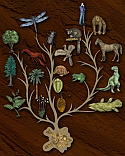 I write quite a bit about evolution, but if you're new to this site or the subject of evolution, it might be a little overwhelming to just browse through the site and read the articles at random. So, this page offers some recommendations on entries to start off with, to give you a good foundation before moving on. I very strongly recommend reading the first five essays in the Foundation section. And if you happen to doubt evolution for religious reasons, and have seen presentations or read material from some of the more prominent creationists (e.g. Answers in Genesis, Kent Hovind, Discovery Institute, etc.), then I'd also recommended the entries from the 'Responses to Misunderstandings and Creationist Arguments' section.
I write quite a bit about evolution, but if you're new to this site or the subject of evolution, it might be a little overwhelming to just browse through the site and read the articles at random. So, this page offers some recommendations on entries to start off with, to give you a good foundation before moving on. I very strongly recommend reading the first five essays in the Foundation section. And if you happen to doubt evolution for religious reasons, and have seen presentations or read material from some of the more prominent creationists (e.g. Answers in Genesis, Kent Hovind, Discovery Institute, etc.), then I'd also recommended the entries from the 'Responses to Misunderstandings and Creationist Arguments' section. I've written an entire book on religion, plus a ton of other essays for this site. That's a lot to expect anybody to read, so if you want the quick introduction, this is it.
I've written an entire book on religion, plus a ton of other essays for this site. That's a lot to expect anybody to read, so if you want the quick introduction, this is it. If you like this site, I'd recommend just looking around and browsing. But I've written nearly 1000 blog entries so far, not to mention all my static pages, so I know that you'd only get a small glimpse of everything I've written that way. So, I figured it might be useful to highlight a few essays and pages that are particularly useful or informative.
If you like this site, I'd recommend just looking around and browsing. But I've written nearly 1000 blog entries so far, not to mention all my static pages, so I know that you'd only get a small glimpse of everything I've written that way. So, I figured it might be useful to highlight a few essays and pages that are particularly useful or informative. 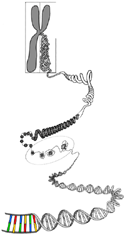 At the most basic, evolution is change in a population over time. But to understand that change, first you need to understand where it comes from.
At the most basic, evolution is change in a population over time. But to understand that change, first you need to understand where it comes from.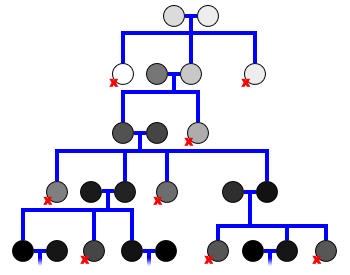
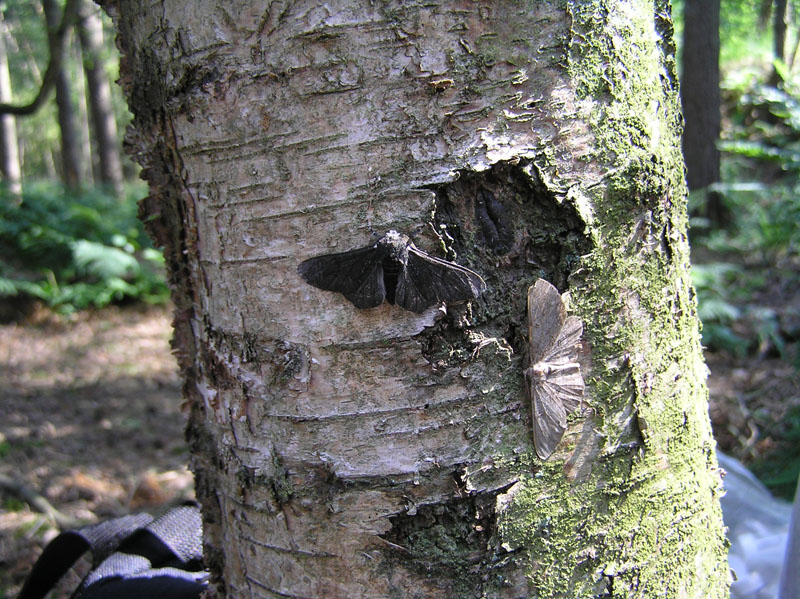
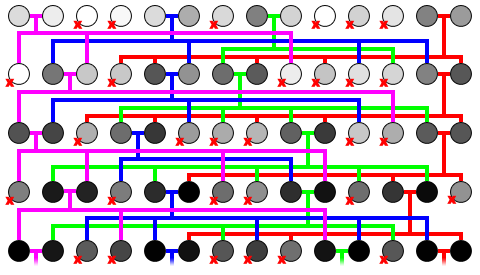



.png)
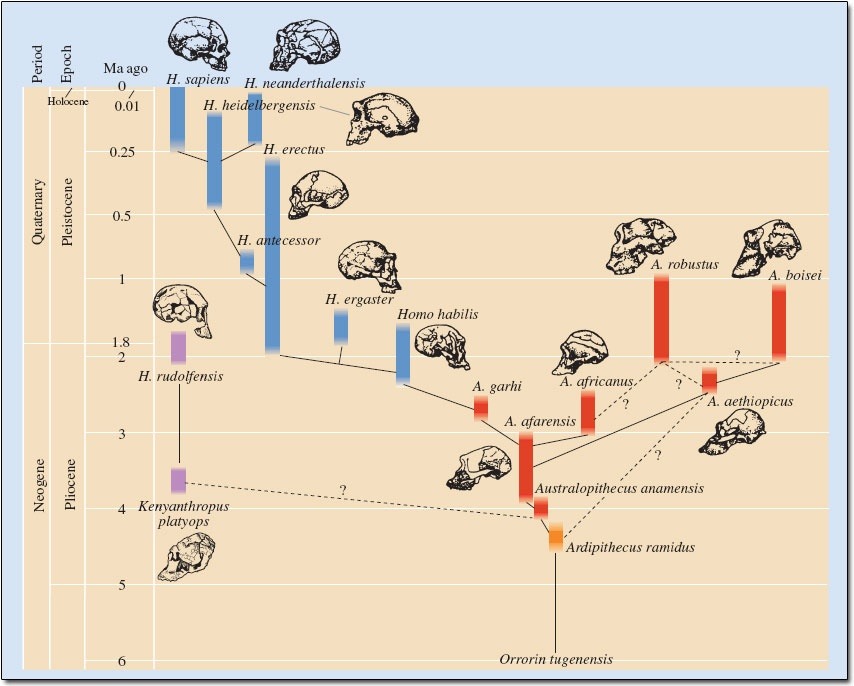
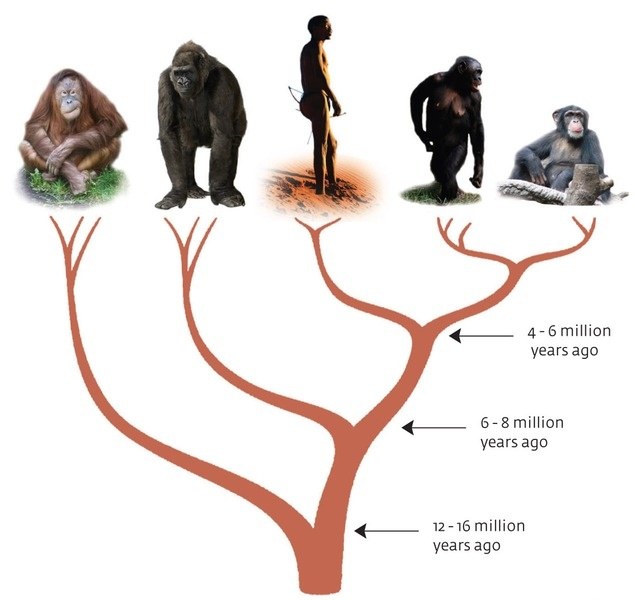
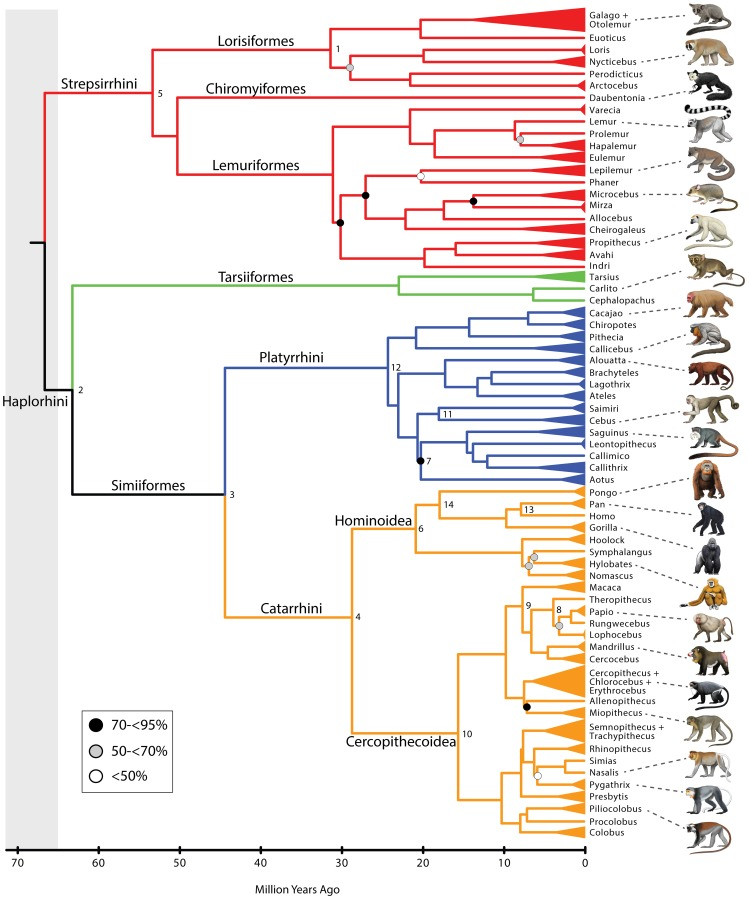
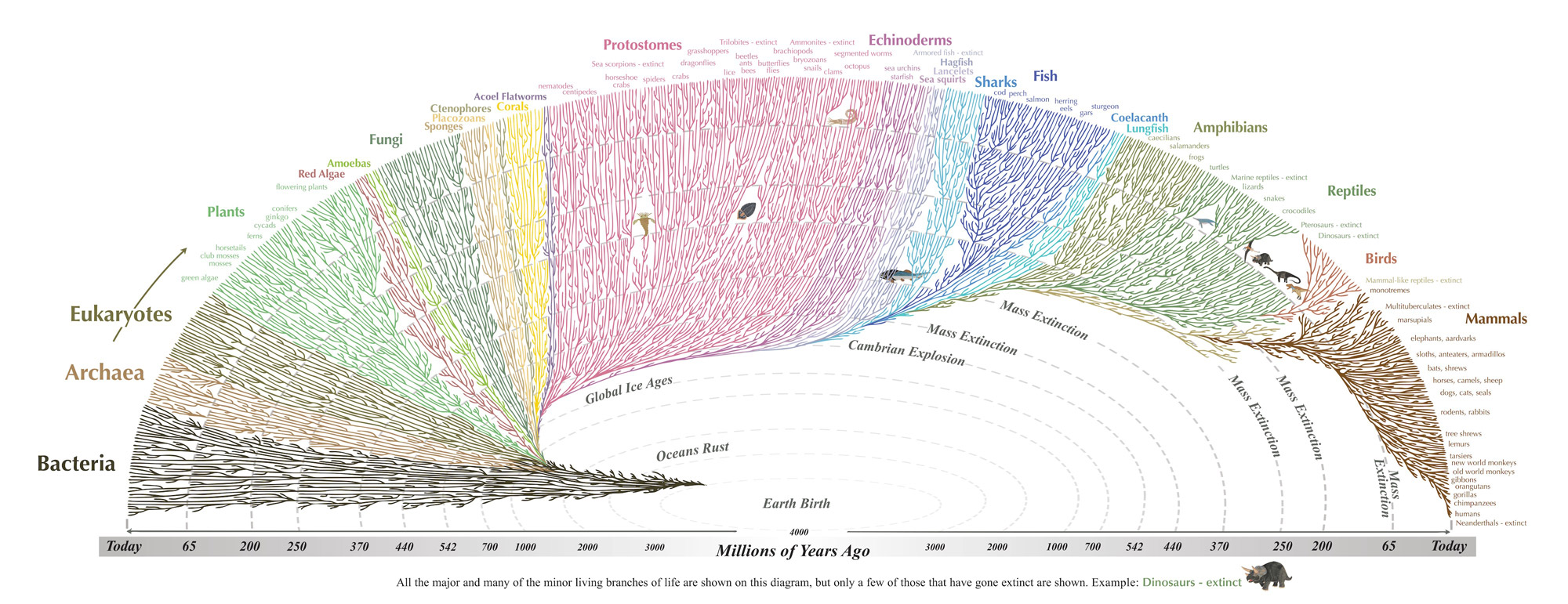
 I wanted to expand on something I wrote a few years ago in the entry,
I wanted to expand on something I wrote a few years ago in the entry, 
